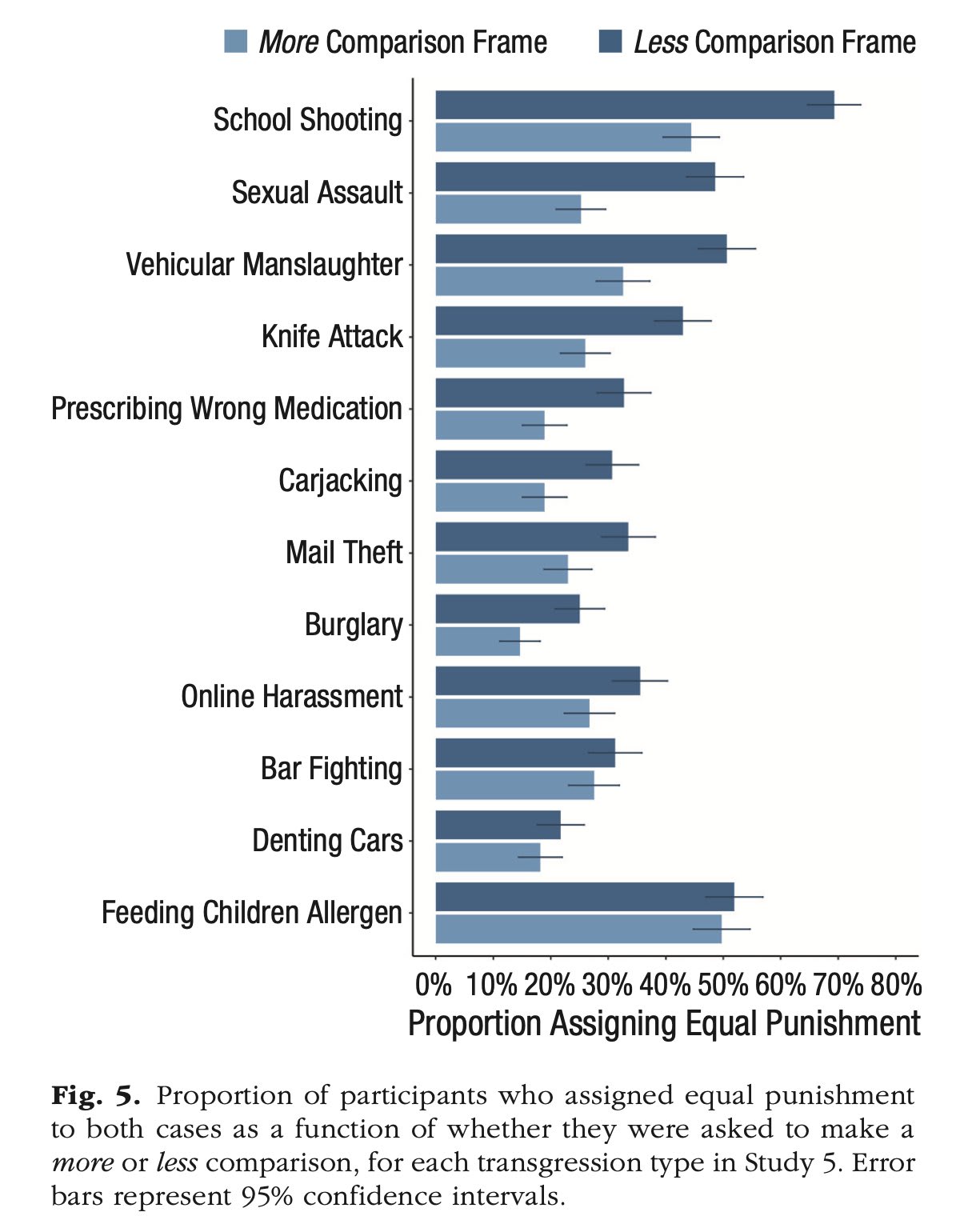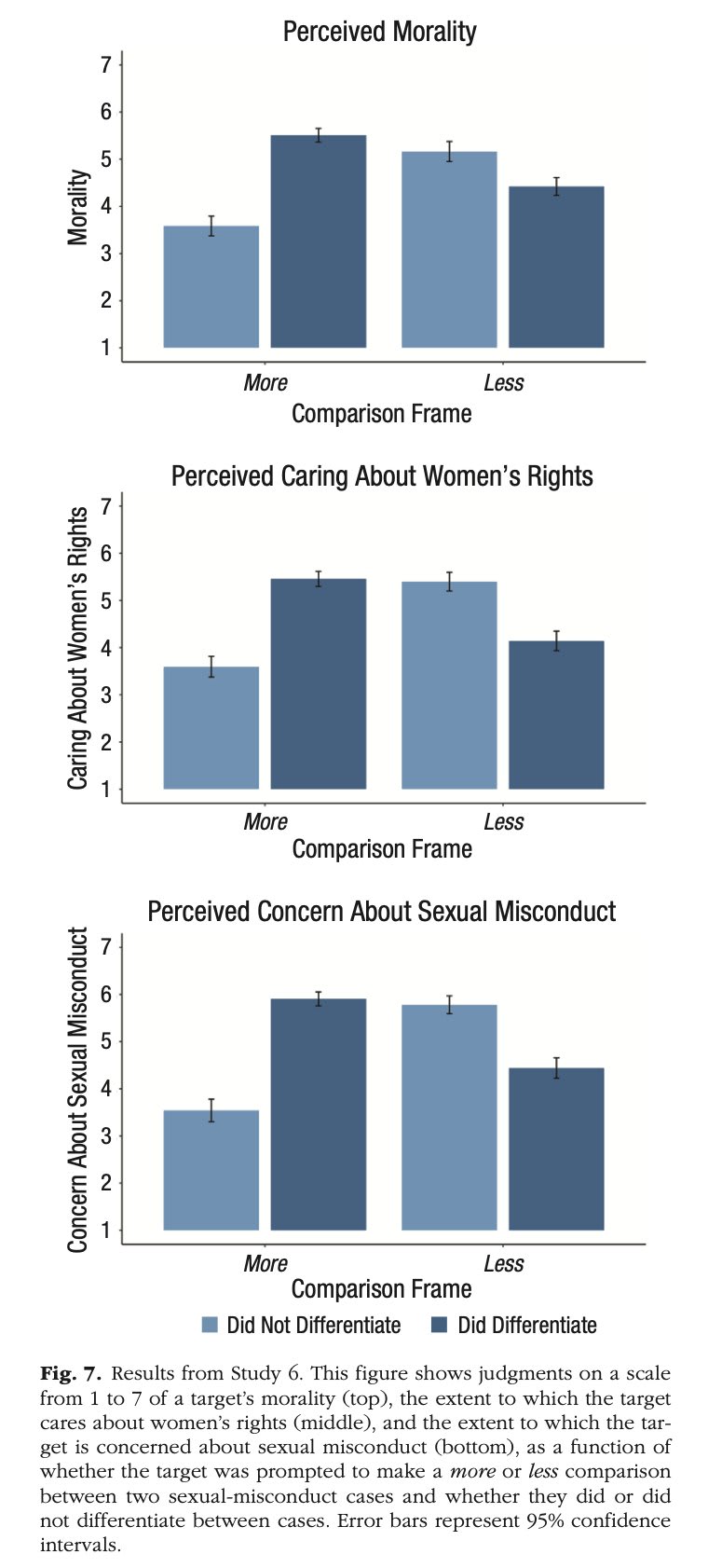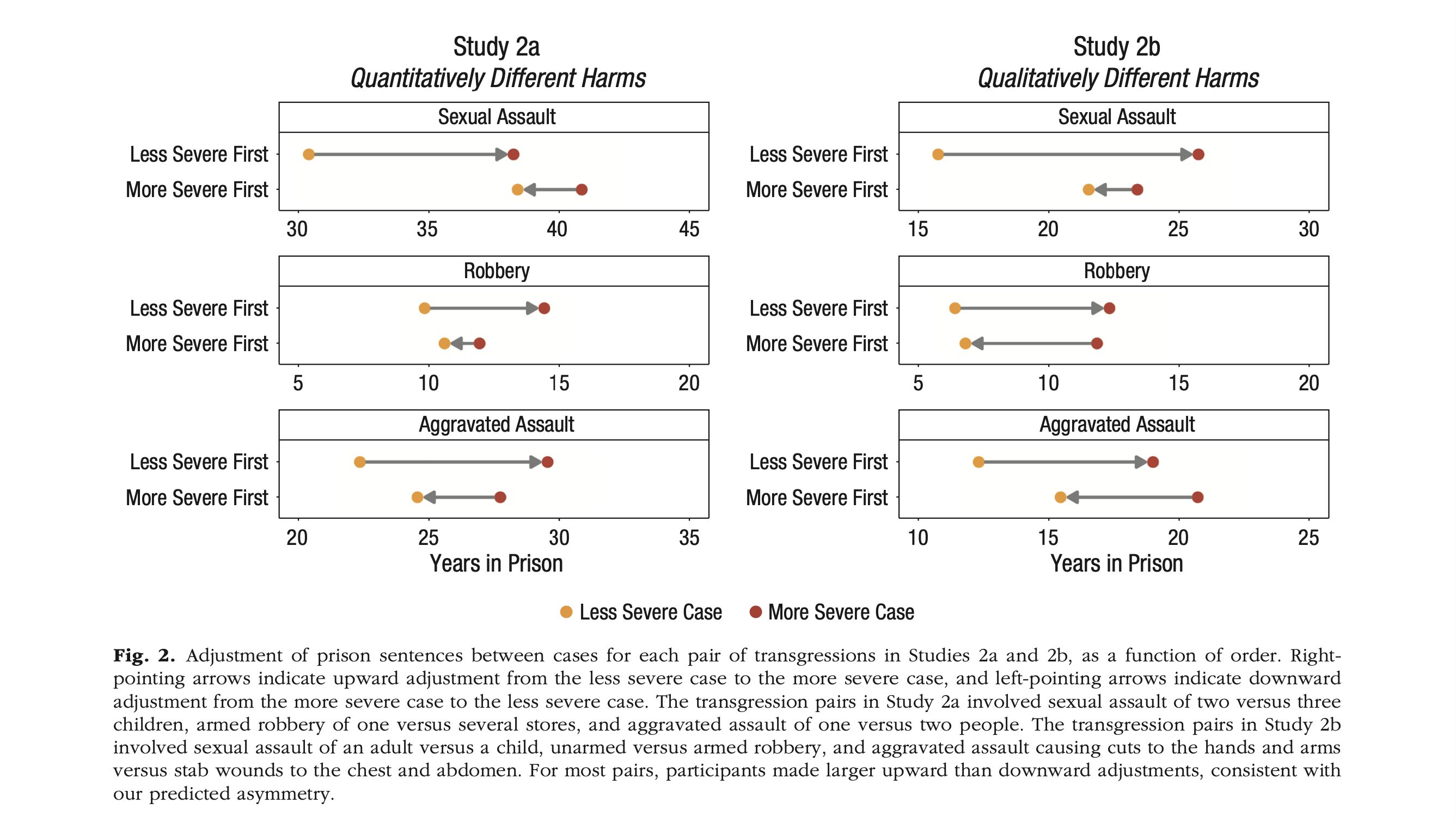Psychology research identifying a bias against harm reduction
By emre kaplan🔸 @ 2025-05-16T09:36 (+20)
This is a linkpost to https://journals.sagepub.com/doi/10.1177/09567976251314972
This article by Amanda E. Geiser, Ike Silver and Deborah A. Small provides evidence for a bias that probably causes some of the resistance against harm reduction. Animal advocates working on harm reduction could find a catchy name for this bias and spread awareness to reduce it.
Abstract and a few tables:
A common-sense moral intuition is that bad acts should be condemned according to severity. Yet seven experiments (N = 6,075 U.S. adults) show that the extent to which people differentiate between transgressions hinges on the direction of comparison. When scaling up from a less severe transgression to a more severe one, people readily express stronger condemnation of the worse transgression. But when scaling down from a more severe transgression to a less severe one, they differentiate less, often condemning the lesser transgression just as strongly as one that is transparently worse. Indicating that one transgression is less bad than another can be construed as downplaying such transgressions, signaling bad moral character. Supporting this account, the asymmetry is larger for judgments that implicate moral character and for transgressions that seem especially important to condemn. Observers’ moral-character judgments reveal a similar pattern, suggesting that the asymmetry is reinforced by social incentives.


Stijn Bruers 🔸 @ 2025-05-16T14:24 (+4)
Have to read the study, but reminds me of what I called the moral gravity bias https://stijnbruers.wordpress.com/2014/08/08/the-moral-gravity-bias/
